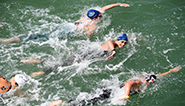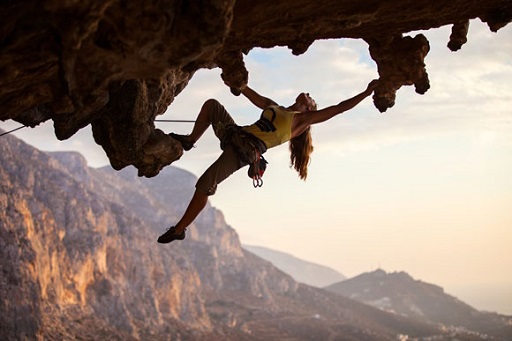5 Resilience at the extremes of sporting performance
‘Resilience’ as a term is perhaps more widely used in environments where the human body is tested to its limits, such as performing in extreme temperatures (e.g., the desert ultramarathon, Marathon de Sablé), and attempting solo challenges where isolation can play a significant role (Leach, 2016). MacIntyre et al. (2019, p. 3) argue that the interaction with nature that occurs in extreme sports ‘offers an opportunity to explore how stress, psychological resources, coping and psychological growth interact’.
To explore this further, in the next activity you will read a short article written by a researcher who is investigating resilience in extreme sports.
Activity 6 Investigating the cluster effect
First, read Dave Harrison’s (2020) blog post where he discusses resilience in extreme environments.
Next, having read Harrison’s post, answer the following:
- Identify what a cluster effect is and why it is of interest when studying resilience.
- Why is a challenge mindset important and how can it be developed in an extreme environment?
Discussion
- A cluster effect occurs when an individual experiences an accumulation or grouping of stressors, rather than experiencing just one. In the blog, Harrison refers to dealing with wet kit while mountain climbing, with no time to address this before the next day’s travel begins. If we are to fully support the development of resilience in extreme sport athletes, we need to understand how they experience stressors, and if groups of stressors can have an accumulative effect, it is crucial that this is considered when preparing the athletes for their events and challenges.
- It is important to develop a challenge mindset as it allows an individual to see situations as a challenge and not as a threat. It is important that this mindset is adopted and then maintained within an extreme environment to buffer against the potential negative impact of a cluster effect of stressors. Increasing an individual’s experience can allow them to slowly build up exposure to stressors and reduce the potential negative effect of stressors.
You will explore the challenge mindset concept further in Session 2, where you look at how we might develop resilience. Before you do this, the final section in this session considers another point raised by Harrison (2020), that our past experiences can help us to respond positively to the given demands of a situation.

